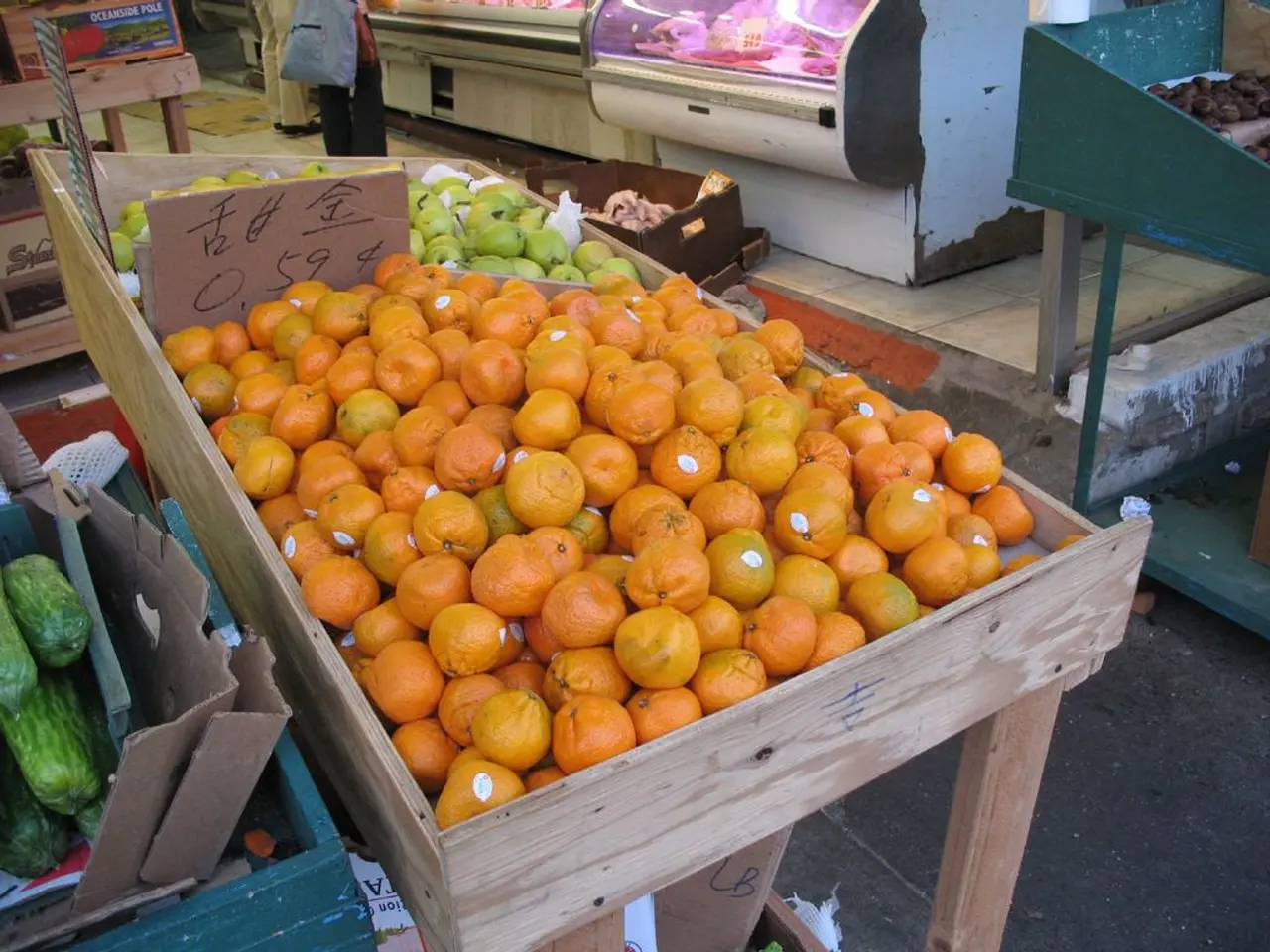Thailand's Lone Consumers Boost Economy: The Impact of the 'Solo Economy' Accounting for Over Two-Thirds of Spending Habits
In the vibrant cityscape of Thailand, a significant shift in consumer behaviour is taking place, with singles leading the charge in the burgeoning 'Solo Economy'. This economic segment, characterized by self-focused spending, is experiencing continuous expansion at rates surpassing overall market growth.
According to government statistics, approximately 25% of Thailand's population remains single, with the majority residing in urban areas. Bangkok, in particular, boasts a single population of 50%. This demographic group is driving about two-thirds of consumer spending, a trend that sets them apart from married consumers who often allocate their budgets towards family needs.
The 'Self-Splurge' phenomenon, as it's come to be known, is particularly prominent in sectors such as beauty services, fashion, home decoration, and luxury goods. Unlike traditional consumers, singles make deliberate, reasoned spending decisions driven by internal motivation for personal fulfilment.
In the beauty services and fashion sectors, single consumers show a higher propensity to spend on premium and luxury products to express individuality and self-care. This contrasts with married individuals who may spend more conservatively, balancing between personal and family consumption. Home decoration spending by singles tends to focus on making their living spaces reflect personal taste and comfort, often favoring stylish and trendy items.
Regarding luxury goods, single consumers often splurge on high-end items as a form of self-reward and status expression. This pattern is less pronounced among married consumers who might prioritize long-term financial responsibilities over luxury spending. The disparity stems from the fact that singles bear complete responsibility for living space costs without the cost-sharing benefits available to couples.
Luxury goods consumption among singles doubles that of families, and spending on experiences and leisure activities reaches twice the per-capita rate of married consumers. Urban singles outspend their rural counterparts by approximately 1.2 times, prioritizing beauty and premium lifestyle categories.
Singles in Thailand spend four times more on beauty products than families. They also invest three times more in sporting goods and allocate triple the amount to dining out compared to families. This trend presents significant opportunities for businesses that understand and cater to the "comprehensive self-care" mindset.
Companies capable of designing products, services, and experiences that resonate with singles' self-investment philosophy are positioned to capture substantial market share in this rapidly expanding economic segment. Singles frequently invest in aesthetic clinics and cosmetic procedures, particularly anti-ageing and brightening treatments.
The 'Self-Splurge' phenomenon among singles in urban Thailand represents a significant shift in consumer behaviour toward self-focused spending, particularly in lifestyle and personal pleasure categories, which contrasts with the more family-centered expenditure patterns of married consumers. This paradigm shift in consumer behaviour signifies a new era in Thailand's retail landscape, where businesses that cater to the needs and desires of the single consumer stand to reap substantial rewards.
- In the sphere of Thailand's vibrant cityscape,, a notable shift in consumer behavior is occurring, as the burgeoning 'Solo Economy' shows an escalating trend, surpassing overall market growth.
- This demographic of single individuals, concentrated in urban areas such as Bangkok, accounts for about two-thirds of consumer spending.
- The 'Self-Splurge' phenomenon is conspicuous in sectors like beauty services, fashion, home decoration, and luxury goods, where singles exhibit a preference for premium and luxury products.
- Unlike married consumers who may often allocate their budgets towards family needs, these self-focused spenders make deliberate spending decisions, driven by personal fulfillment.
- In the realm of luxury goods, single consumers tend to splurge on high-end items as a form of self-reward and status expression.
- Businesses that understand and cater to the "comprehensive self-care" mindset of singles stand to capture substantial market share in this rapidly expanding economic segment.
- Singles in Thailand invest significantly more in sporting goods, dining out, and personal care compared to families, with a particular emphasis on anti-ageing and brightening treatments.
- The paradigm shift in consumer behavior amongst single urban consumers towards self-centered spending patterns opens up a new era in Thailand's retail landscape, creating lucrative opportunities for businesses that cater to their needs and desires.




